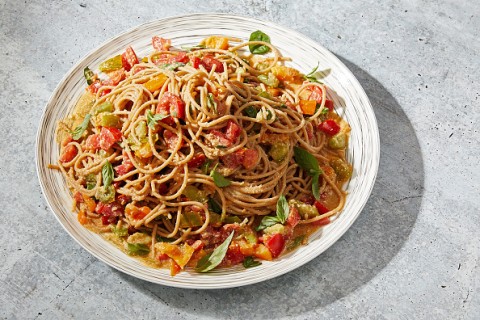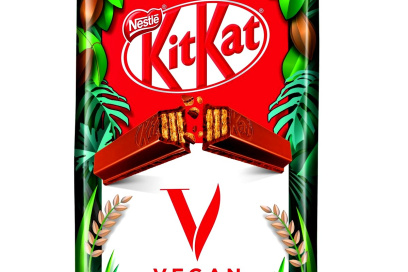As a vegan, one of the most frequently asked questions I receive is, "Do vegans eat pasta?" And the answer is an emphatic yes! Pasta is an incredibly versatile, protein-rich food that's easy to prepare and can be used in numerous dishes. But not all pasta brands and toppings are suitable for vegans - which is why it's essential to know which brands and toppings are vegan-friendly so you can enjoy delicious plant-based pasta dishes at home with confidence. In this article, I will explore this answer in detail, provide some vegan pasta brands, and offer tips on enjoying pasta as a vegan in an enjoyable yet healthful manner. So let's dive into the world of vegan pasta options together!
I. Vegan Pasta Options to Try Out
As more and more people adopt a vegan lifestyle, there is now an abundance of vegan-friendly pasta options. With so many plant-based brands and types now available, it can be difficult to know what to choose. Here is our selection of the best vegan-friendly pasta brands and types that are readily accessible:
- Whole Wheat Pasta: Whole wheat pasta is a healthier option than plain white pasta because it's made with whole grains, which are higher in fiber and nutrients than refined grains. Typically vegan-friendly, whole wheat pasta may not need an ingredient list check but it's always wise to double check before purchasing.
- Brown Rice Pasta: Another gluten-free and vegan-friendly option is brown rice pasta. Not only is this pasta great for those with gluten intolerances or sensitivities, but it's also packed full of fiber and essential nutrients essential to a balanced diet.
- Vegan Pasta Brands: Nowadays, many companies offer vegan pasta options made with simple and wholesome ingredients. Popular vegan pasta brands include Barilla, Tolerant, Jovial and more; you can find delicious and nutritious vegan pasta dishes in most grocery stores today.
- Gluten-Free Vegan Pasta: If you're trying to steer clear of gluten, there are several vegan-friendly gluten-free pasta options that are vegan-friendly: lentil pasta, quinoa pasta and chickpea pasta are just three examples. These healthier choices contain more protein and fiber than traditional pasta varieties for a nutritious and well-rounded diet.
Once you've selected your pasta, it's important to decide on toppings and sauces. Vegan-friendly sauces are best or homemade from plant-based ingredients; many traditional sauces contain animal products or byproducts so always read the label before making a vegan-friendly selection.
Marinara sauce is a traditional vegan pasta sauce made with tomatoes, herbs, spices and sometimes onions or garlic. Pesto sauce, on the other hand, has fresh basil, pine nuts and olive oil as its base. Other vegan-friendly pasta sauces include tomato-based dishes like arrabbiata or puttanesca; mushroom sauce; as well as garlic-and-oil.
If you're feeling adventurous, creating a vegan pasta sauce at home is simple. All you have to do is select your favorite ingredients like roasted red peppers, artichokes or sun-dried tomatoes and blend them with olive oil, herbs and spices - giving you complete control over flavor and consistency while knowing exactly what goes into your sauce.
In conclusion, vegan-friendly pasta options range from traditional wheat pasta to gluten-free alternatives, making it simple for vegans to enjoy pasta on a diet. By selecting vegan-friendly sauces, you can find delicious, nutritious dishes that will leave you feeling great both inside and outside the plate.
II. Vegan Pasta Toppings and Additions
Once you've selected your pasta of choice, it's time to consider toppings and additions. While there are endless possibilities, here are a few vegan-friendly favorites that always work well.
- Meat-Free Pasta Dishes: Enjoy all the meaty flavors and textures without missing out when eating vegan pasta dishes. There are many plant-based meat alternatives that can be used as a meat alternative, such as marinated tofu, tempeh or seitan. You could also incorporate lentils, chickpeas or beans for additional protein sources in your pasta dishes.
- Dairy-Free Options: Cheese is a beloved topping for pasta dishes, but unfortunately most cheese is incompatible with vegans. Fortunately, there are many vegan cheese alternatives that can be used as an enjoyable topping on vegan pasta dishes. Nutritional yeast also works great to add an irresistibly cheesy flavor to pasta dishes.
- Simple Garnishes: Sometimes, the tiniest garnishes can make all the difference when it comes to flavor and visual appeal. Fresh herbs like basil or parsley can be finely chopped and sprinkled over pasta dishes for a pop of color and freshness. Roasted or grilled vegetables, such as eggplant or zucchini, also add delicious smoky notes to pasta dishes.
- Plant-Based Fats and Oils: Plant-based fats such as olive oil can be drizzled over vegan pasta to add flavor, texture, and healthy fats. Other oils like avocado or coconut oil may also be used in vegan pasta sauces for extra flavor and moisture.
- Vegan-Friendly Spices and Seasonings: Don't underestimate the power of spices when it comes to vegan pasta dishes. Garlic, onion powder, crushed red pepper, and Italian seasoning blends are all excellent choices; just be sure you read their labels first to make sure they're vegan-friendly.
By adding vegan-friendly toppings and additions, your plant-based pasta dishes can reach new heights of flavor and excitement. Just remember to read labels carefully and select ingredients that are healthy whenever possible, and you'll have endless opportunities for creating delectable vegan pasta dishes!
III. Vegan Pasta Cooking Tips
Cooking pasta is a relatively straightforward process, but there are some essential tips and tricks to remember when creating an incredible vegan pasta dish.
-
Cooking and Storing Vegan Pasta Properly:
To cook vegan pasta properly, fill a large pot with water and bring it to a boil. Once boiling, add the pasta and salt, stirring occasionally to prevent sticking. Cook for 8-12 minutes or until al dente (cooked but still firm to the bite). Drain well under cold water afterwards in order to stop the cooking process.
Once the pasta is cooked, it is essential to store it properly to prevent drying out or sticking together. Lightly coat the pasta in olive oil before tossing, or store with some reserved cooking water in your fridge for extra moisture.
-
Time-Saving Cooking Techniques for Vegan Pasta:
If you're short on time, there are several time-saving techniques you can use when cooking vegan pasta. One option is combining vegetables, pasta and sauce in one pot then cooking everything together - this makes cleanup much simpler too! Alternatively, precook the pasta ahead of time then store in the fridge until use; simply reheat and add your toppings when ready.
-
Important Guidelines for Cooking Vegan Pasta:
Finally, there are a few key things to remember when cooking vegan pasta. Always use salted water for cooking the pasta as this helps enhance its flavor; add pasta directly into the sauce instead of vice versa; this allows it to absorb more flavor. Finally, don't overcook as that causes it to become mushy and lose its taste; additionally, never rinse pasta with hot water as this causes it to lose texture.
One of the advantages of vegan pasta is its ease of preparation and cooking, making it a great choice for busy weeknights or large gatherings. Just be sure to follow these tips and tricks so your dishes come out delicious and satisfying every single time.
IV. Vegan Pasta Recipe Ideas
Now that you understand the various types of vegan pasta and how to cook them, it's time for some creative cooking with delicious vegan pasta recipes!
1. Vegan Spaghetti Carbonara
This innovative take on classic carbonara uses creamy cashew sauce, chickpea bacon and roasted garlic to create an irresistibly rich sauce.
Ingredients:
- 12 oz. spaghetti
- 1 cup raw cashews, soaked
- 1/4 cup nutritional yeast
- 3 teaspoons lemon juice
- Salt and garlic powder, minced
- 1/4 teaspoon black pepper
- 2 teaspoons olive oil, minced onion
- 4 cloves garlic minced
- 1/2 cup vegetable broth and chickpea bacon for topping
- Garnish with fresh parsley
Instructions:
- Cook spaghetti according to package instructions.
- In a blender, blend together soaked cashews, nutritional yeast, lemon juice, salt, garlic powder, black pepper and 1 cup water until completely smooth.
- Heat olive oil in a pan and add onions, saute until golden brown. Stir in garlic for 30 seconds.
- Pour vegetable broth into the same pan and bring to a boil. Then stir in cashew mixture until sauce has thickened.
- Chop the chickpea bacon into small pieces and add it to the sauce.
- Finally, serve your spaghetti with this delicious sauce garnished with fresh parsley.
2. Vegan Pesto Pasta
Enjoy this simple yet delectable pesto sauce as the perfect pasta dish to welcome in summer nights.
Ingredients:
- 12 oz. linguine or your choice of vegan pasta
- 2 cups fresh basil leaves
- 2 cloves garlic
- 1/2 cup pine nuts
- 1/2 cup olive oil
- 1/2 cup nutritional yeast
- 1 lemon, juiced
- Salt and black pepper
Instructions:
- Cook the pasta according to package instructions.
- In a blender, mix fresh basil leaves, garlic, pine nuts, olive oil, nutritional yeast, lemon juice, salt and black pepper until thoroughly mixed.
- Once your pasta has cooked through, reserve 1/4 cup of its cooking water before draining it away.
- Return the pasta to its pot and combine with pesto sauce and reserved pasta water until fully coated.
- Serve hot, garnishing if desired with more fresh basil leaves.
3. Vegan Bolognese Pasta
This vegetarian version of a classic bolognese recipe uses vegetables instead of meat for an incredibly healthful and flavorful alternative.
Ingredients:
- 12 oz. spaghetti squash
- 1 tablespoon olive oil
- 1 medium onion chopped into cubes
- 2 cloves garlic minced
- 2 medium carrots peeled and diced
- 2 celery stalks diced
- 1-can (28 ounces) crushed tomatoes
- 2 tablespoons tomato paste
- 1/2 teaspoon dried basil or oregano and 1/4 teaspoon black pepper
- Season to taste with salt
Instructions:
- Heat olive oil in a large skillet over medium-high heat and add onion, garlic, carrots and celery; cook until vegetables are tender (approximately 10 minutes).
- Stir in crushed tomatoes, tomato paste, dried basil oregano black pepper and salt to taste; stir to incorporate all ingredients.
- Bring the mixture to a boil, then reduce heat to low and simmer for 20-25 minutes.
- In the meantime, cook spaghetti according to package instructions.
- Finally, top off with the bolognese sauce before serving hot.
No matter if you're in the mood for a comforting bowl of spaghetti bolognese or an irresistibly fresh pesto pasta dish, these vegan pasta recipe ideas will tantalize your taste buds and nourish your body at the same time.
Conclusion
Now you know that as a vegan, pasta is definitely possible--so long as you opt for vegan-friendly options and toppings. From whole wheat and brown rice pasta to gluten-free versions made from chickpeas, lentils or quinoa -- there are plenty of nutritious and healthful pasta dishes available to vegans.

Always read the label to make sure the pasta you purchase does not contain any animal products or byproducts. Furthermore, opt for vegan-friendly pasta sauces and toppings like marinara sauce, pesto sauce, or vegan meat alternatives.
Cooking vegan pasta is a simple task with only a few steps and techniques that anyone can master. Whether you're cooking it as-is or creating an impressive plant-based pasta dish, selecting the perfect pasta and toppings can take your meals from ordinary to extraordinary in no time!
In conclusion, vegan pasta is an ideal choice for anyone seeking delicious and nutritious plant-based meals. With so many vegan-friendly brands, toppings, and recipe ideas available to choose from, you can experience a wide range of flavorful and satisfying pasta dishes suitable for any special occasion.




